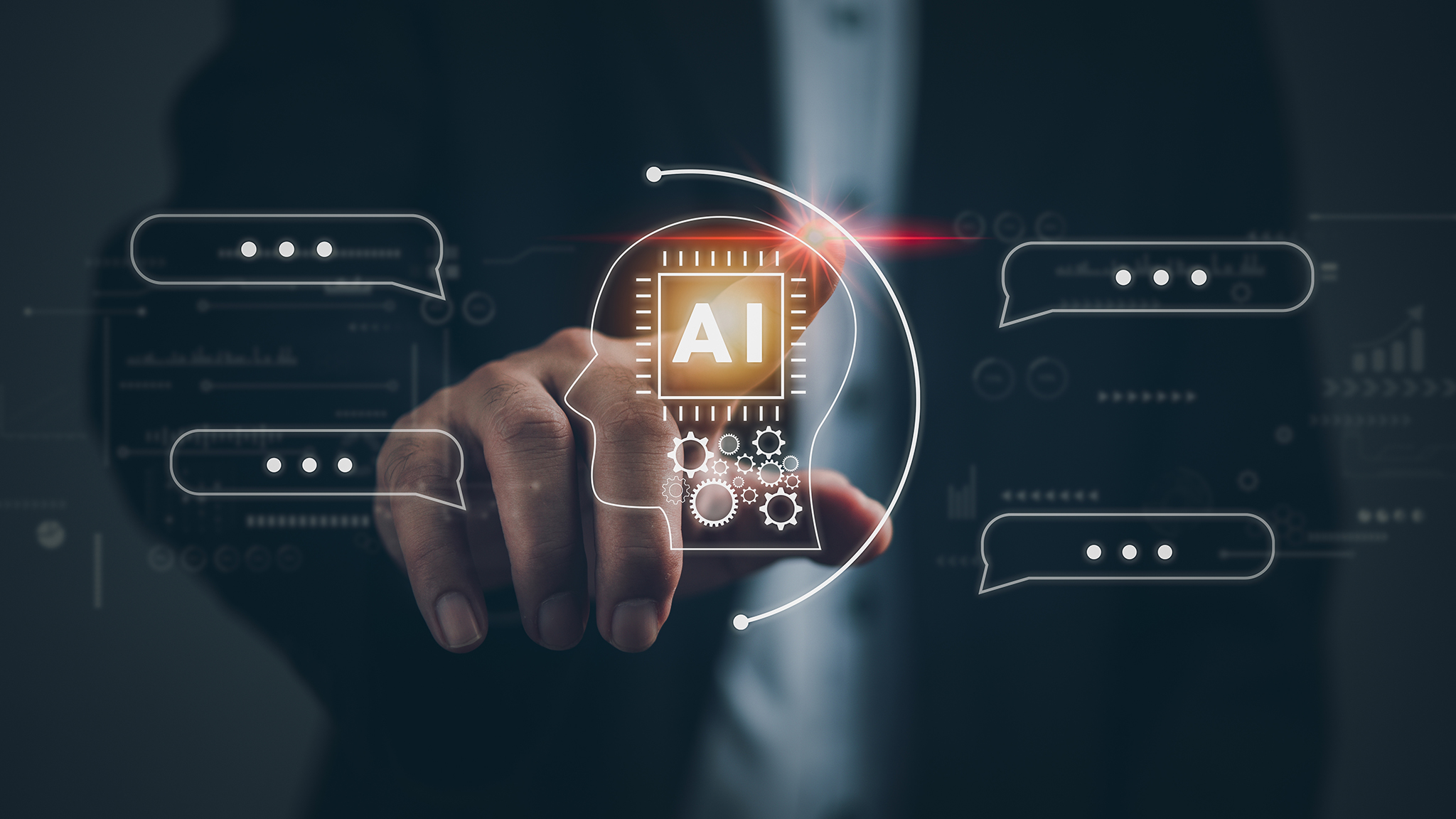AI: Enhancing the Future of Digital Transformation
Artificial Intelligence is more than just a technological marvel. It’s a transformative force now reshaping industries and unlocking new potential globally. The AI market, which has seen a phenomenal rise from $12 billion in 2020 to an impressive $136.55 billion in 2022, is poised to soar at a Compound Annual Growth Rate (CAGR) of 37.3% from 2023 to 2030. This exponential growth is not just a result of AI’s versatile applications but also its increasing accessibility, thanks to tech companies democratizing AI for broader use.
The integration of AI in digital transformation is revolutionizing traditional business processes. Although the concept of digital transformation first emerged around 2013, AI has brought new dynamism to this evolution. Especially in established companies burdened with decades of data, AI can act as a catalyst, converting extensive historical records into valuable, actionable insights much faster than any human can accomplish or even imagine. It has also significantly been instrumental in optimizing business processes and personalizing customer experiences, apart from accelerating and scaling digital transformation efforts even in legacy systems.
AI’s influence is pervasive, from enhancing security protocols and improving threat detection in cybersecurity to ensuring accuracy and quality in fields like 3D printing. Moreover, the synergy of AI with Machine Learning creates a continually evolving system. This combination enables AI to adapt to emerging trends, learn from past errors, and consistently enhance its performance, making the role of AI in digital transformation invaluable.
As we delve deeper, let’s explore the multifaceted impact of AI in digital transformation and its various aspects, illustrating how it’s not just reshaping businesses but also setting the stage for a more advanced and efficient future.
AI in Digital Transformation – Understanding Where the New Tech is Driving Change?
The role of AI in digital transformation is revolutionary. It is streamlining operations, enhancing customer experiences, and opening up new avenues for innovation.
Below are some areas where the impact of AI is conspicuous:
AI and IoT
When talking about the role of AI in digital transformation, the way it enhances the functionality of the Internet of Things cannot go unmentioned. While standalone IoT sensors gather data, their integration with AI revolutionizes how this data is used. AI empowers these sensors not only to collect information but also to analyze and make smart decisions based on the data.
For example, in remote healthcare, AI-enabled IoT devices can monitor patient health metrics in real-time, offering predictive insights that can lead to early intervention and personalized care plans. In industrial settings, it is being used to prioritize worker safety. AI-driven IoT systems in factories can predict equipment failures or hazardous conditions, ensuring a safer working environment and preventing accidents before they happen.
Conversational AI
AI is also at the forefront of digital transformation in customer service, particularly in contact centres. Traditional issues in customer service, such as long wait times and confusing IVR menus, often frustrate customers. Conversational AI is changing this dynamic, going beyond the capabilities of standard chatbots. These advanced systems, powered by Machine Learning and Natural Language Processing (NLP), can understand and respond to customer inquiries with a level of sophistication and personalization previously unattainable.
Properly trained conversational AI can tailor its responses to specific industries and customer issues, offering far more accurate and contextually relevant solutions than their predecessors. This evolution in AI technology significantly improves the customer experience, making interactions more efficient and effective.
Generative AI
Generative AI stands out in its ability to enhance efficiency and creativity in digital transformation. This form of AI significantly reduces the time taken for tasks such as email composition and report generation. In creative and design industries, generative AI is a game-changer, automating aspects of the creative process and producing high-quality, innovative graphics.
Moreover, generative AI tools are used in fields like accounting for data extraction, reconciliation, and error reduction. These tools process large volumes of data quickly and accurately, reducing manual effort and increasing overall efficiency. The application of generative AI in the digital transformation of creative industries is a testament to its versatility and potential to revolutionize various business processes.
AI-Enabled Product Development
One of the most striking capabilities of AI is to process and analyze large amounts of data efficiently. This capability is particularly beneficial when understanding customer feedback, behaviour analytics, and survey data. Brands can leverage AI to conduct comprehensive analyses of product prototypes, leading to enhanced product development and reduced time-to-market, efficiently using AI in digital transformation.
This application of AI in product development is not confined to conventional products like smartphones or sneakers. It plays a crucial role in creative and unconventional areas, such as creating imitation flavour profiles, like smoked or spiced products or developing brand experiences. By analyzing consumer preferences and market trends, AI helps craft unique and appealing products and experiences that meet specific customer needs and tastes.
In this context, AI demonstrates its versatility and transformative impact on how products are conceived, developed, and brought to the market. It’s a tool that not only streamlines the development process but also infuses innovation and precision into product design, making it an invaluable asset in the competitive digital transformation landscape.
AI-enabled advertising and marketing
The change in how businesses communicate with and engage their customers underscores the role of AI in the digital transformation of advertising and marketing segments. AI’s advanced analytics and predictive capabilities are revolutionizing traditional marketing by enabling hyper-personalized ad campaigns and optimizing the timing of communications. These AI-driven strategies are tailored to individual customer preferences and behaviours, leading to more effective and engaging marketing efforts.
AI’s role extends beyond just targeted ads; it’s crucial to determine the best times to reach customers and evaluate their responses to advertising. By analyzing online behaviour patterns, AI predicts the most opportune moments for engagement, enhancing the chances of conversion. Additionally, AI processes extensive feedback data instantly, allowing marketers to adapt their strategies based on real-time customer reactions and preferences. This capability to track ad performance and analyze sentiments leads to more refined and impactful marketing strategies.
Integrating AI in advertising and marketing signifies a shift towards more personalized, data-driven approaches. This helps businesses reach their target audience effectively and fosters more profound, meaningful customer interactions. As AI advances, its influence on marketing is poised to grow, unlocking new opportunities for innovation and engagement.
Conclusion
Integrating AI in digital transformation is not just a technological evolution but a fundamental shift in how businesses and societies operate. From enhancing operational efficiency to revolutionizing customer engagement and driving innovation in product development and marketing strategies, AI’s role is multifaceted and transformative.
As we stand on the brink of this AI-driven era, businesses must choose AI solutions that align with their specific needs and challenges. Collaboration with partners with technical AI expertise and sector-specific knowledge will be essential to tailor AI solutions effectively.
Yet, as we harness the power of AI, we must also navigate its challenges responsibly. Balancing technological advancement with ethical considerations, preparing the workforce for an AI-augmented future, and protecting against new cyber threats are essential steps in this journey.
AI in digital transformation is a powerful catalyst for innovation and progress. As we look to the future, the possibilities are boundless, but they come with a responsibility to guide AI development wisely and ethically. The next chapter in this AI narrative promises advanced technology, an opportunity for positive change, and a more efficient, intelligent, and equitable world.



